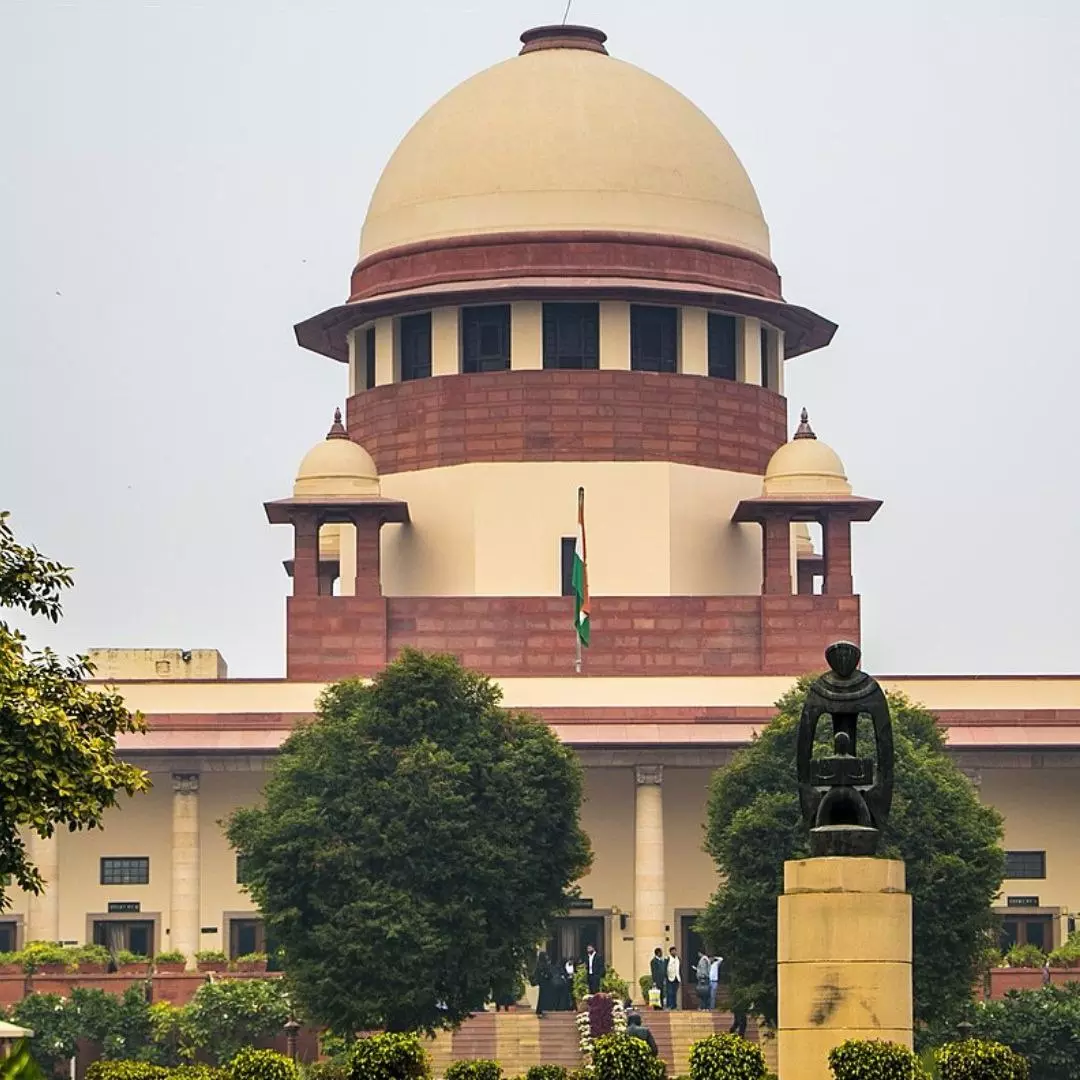
Image Credits: Wikipedia
Citizens Don't Have The Right To Know Source Of Electoral Funds: SC
Writer: Ankita Singh
A literature lover who likes delving deeper into a wide range of societal issues and expresses her opinions about the same. Keeps looking for best-read recommendations while enjoying her coffee and tea.
Delhi, 31 Oct 2023 7:40 AM GMT
Editor : Al Arafat Sherfuddeen |
Passionate writer about current events, politics and happenings nationally and globally. An agent of communal harmony and an ardent Arsenal fan.
Creatives : Ankita Singh
A literature lover who likes delving deeper into a wide range of societal issues and expresses her opinions about the same. Keeps looking for best-read recommendations while enjoying her coffee and tea.
A five-judge constitution bench of the Supreme Court is set to commence hearings on October 31, 2023, to address a series of pleas challenging the validity of the electoral bond scheme for political funding of parties.
The top law officer of the Supreme Court emphasized that the power of judicial review does not extend to critiquing state policies merely for the sake of suggesting alternative courses of action. Speaking on the matter, he clarified, "A constitutional court reviews state action only if it infringes upon existing rights, not because the state's actions may not have provided for a potential right or expectation, regardless of how desirable it may be."
He further highlighted the democratic significance of contributions to political parties and the need for political debate and governance accountability that remains uninfluenced. However, he made it clear that the court should not intrude into such matters unless a clear constitutional violation is evident in the absence of an offending law.
A five-judge constitution bench of the Supreme Court is set to commence hearings on October 31, 2023, to address a series of pleas challenging the validity of the electoral bond scheme for political funding of parties.
The electoral bond scheme, introduced by the government on January 2, 2018, aimed to replace cash donations to political parties and enhance transparency in political funding. According to the scheme, electoral bonds can be purchased by Indian citizens or entities incorporated in India, either individually or jointly, as per a report in The New Indian Express.
The bench, led by Chief Justice DY Chandrachud, is scheduled to hear a set of four pleas, including those filed by Congress leader Jaya Thakur and the CPI(M). The other members of the bench are justices Sanjiv Khanna, BR Gavai, JB Pardiwala, and Manoj Misra.
In a previous hearing on January 20, 2020, the Supreme Court had declined to grant an interim stay on the 2018 Electoral Bonds Scheme, seeking responses from the Centre and the Election Commission. Under this scheme, only political parties registered under Section 29A of the Representation of the People Act, 1951, and having secured at least one percent of votes in the last general election to Lok Sabha or a state legislative assembly, are eligible to receive electoral bonds.
According to the notification, eligible political parties can encash electoral bonds only through accounts with authorized banks. The Supreme Court had previously refused to stay the Electoral Bond Scheme in April 2019, emphasizing that it would hold an in-depth hearing on the pleas due to the significant implications on the integrity of the electoral process, especially concerning the anonymity of donors and transparency in political funding.
Also Read: Gujarat's Venture Into Space: Exploring Implications Of MoU With IN-SPACe For Space Manufacturing
 All section
All section














